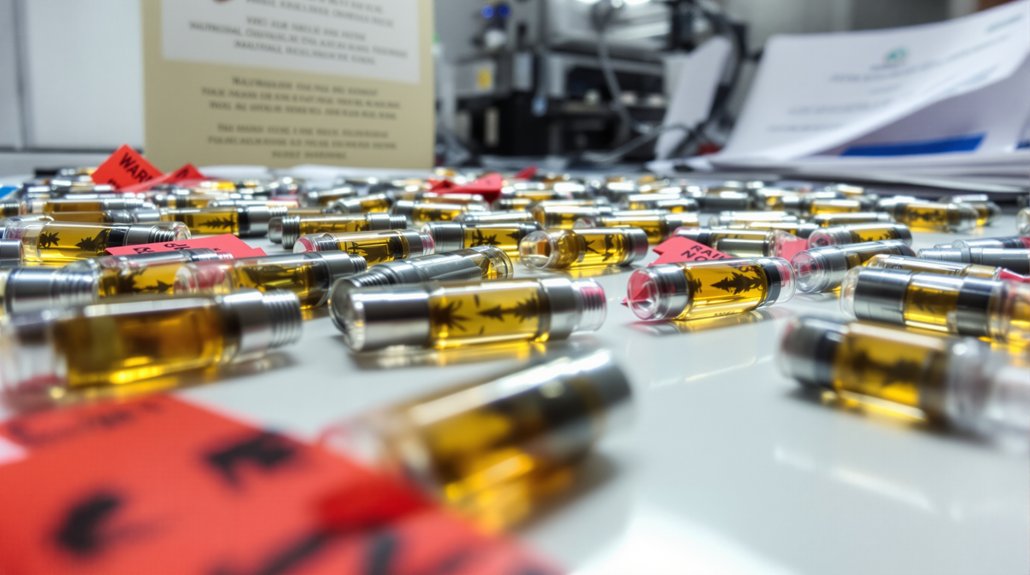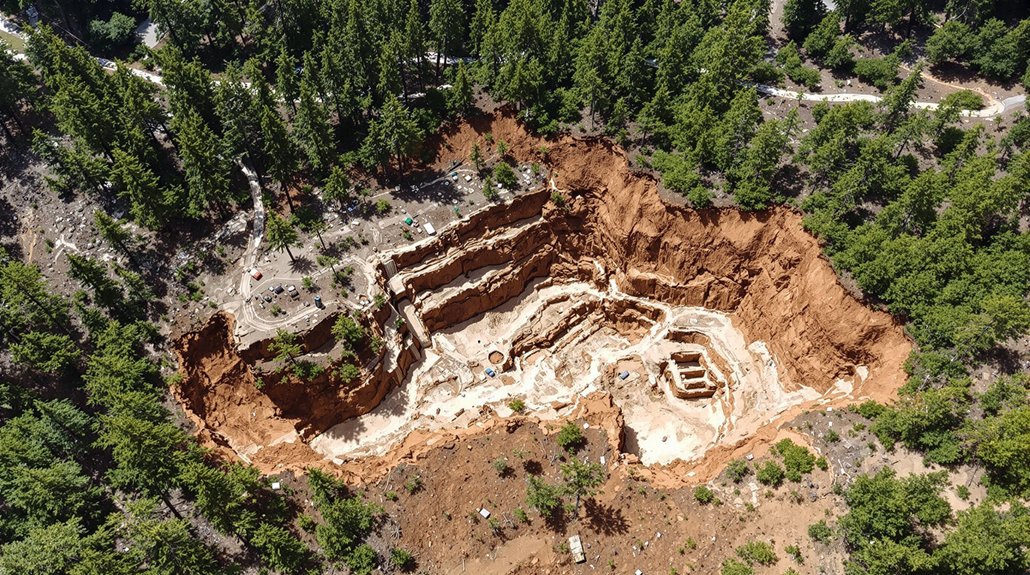When California’s cannabis regulators discovered daminozide contamination in Mr. Zips vape cartridges, thousands of products vanished from dispensary shelves statewide in August 2025. The California Department of Cannabis Control coordinated the massive recall after detecting the Category I pesticide, which remains completely banned in cannabis products regardless of concentration levels.
Thousands of contaminated Mr. Zips vape cartridges disappeared from California dispensaries after regulators detected banned daminozide pesticide in August 2025.
The recall swept through multiple Mr. Zips varieties including First Class Funk, Golden Gas, Lemon Cherry Runtz, Crescendo, Smarties, and Space Rocks. Daminozide contamination triggered immediate obligatory action due to serious health risks posed by the chemical compound. State regulators classified the situation as an immediate threat requiring rapid product removal from the entire supply chain.
This recall follows California’s troubling pattern of contaminated cannabis products reaching consumers. The West Coast Cure brand faced similar scrutiny in 2024 when over 62,000 vapes contained prohibited pesticides including chlorfenapyr, paclobutrazol, and trifloxystrobin. That incident affected 169 retail locations across the state, highlighting widespread distribution problems.
California operates two distinct recall categories: required recalls ordered by the DCC for health threats, and voluntary recalls initiated by licensees. The Mr. Zips situation fell into voluntary territory. The DCC’s notification process alerts all licensees carrying affected inventory while publishing detailed information on their official recall portal.
Testing failures often trace back to laboratory misconduct or certification lapses. Interestingly, independent labs sometimes catch contamination missed during initial certification processes. Infinite Chemical Analysis, an independent laboratory, flagged contaminated batches that certification labs had previously approved. This detection gap reveals ongoing challenges in regulatory oversight and industry testing protocols. California has struggled to establish effective oversight since the recreational cannabis market was created in 2018.
Consumer advisories warn against using identified contaminated cartridges while directing buyers to check packaging and batch numbers against recall lists. The state provides contact information for consumer inquiries, though the damage to brand reputation often proves irreversible. These recall events consistently erode consumer trust and raise broader questions about product safety standards. The high potency of vape cartridges compared to other consumption methods makes contamination particularly concerning. Consumers experiencing symptoms or adverse reactions should contact a physician immediately for proper medical evaluation.
The cannabis industry faces significant financial consequences from major recalls. Brands must absorb stock losses through product destruction or expensive remediation requirements. Beyond immediate costs, companies struggle with damaged reputations and diminished market confidence.
Regular state-mandated safety testing theoretically prevents contaminated products from reaching consumers, yet detection gaps persist. The Mr. Zips recall demonstrates that California’s cannabis safety system, while obligatory on paper, continues grappling with enforcement challenges and testing reliability issues that occasionally allow dangerous products into the legal marketplace.









